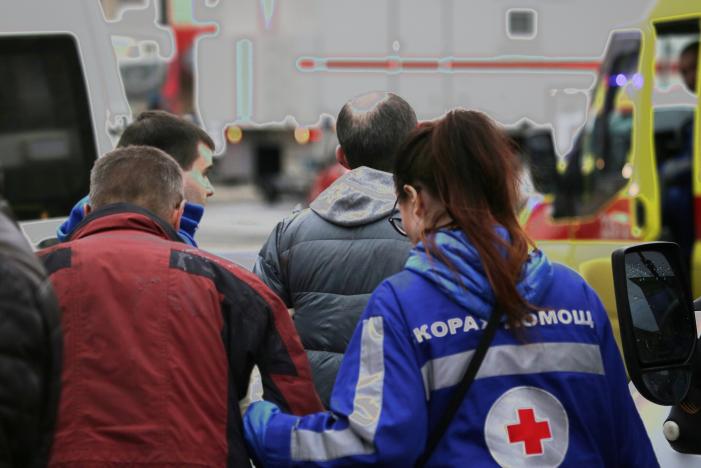Terrorism suspected as at least ten are killed in Russian metro explosions

At least 10 people were killed today and around 50 injured when explosions blasted two train carriages at metro stations in St. Petersburg, Russian authorities have said.
The Interfax news agency quoted an unnamed source as saying one of the blasts was caused by a bomb filled with shrapnel.
President Vladimir Putin, who was in St. Petersburg for a meeting with the Belarussian leader Alexander Lukashenko, said the cause of the blasts was not yet clear and efforts were underway to find out. He said he was considering all possibilities including terrorism.
A witness told Reuters that eight ambulances could be seen near the Sennaya Ploshchad metro station.
Video showed injured people lying bleeding on a platform, some being treated by emergency services. Others ran away from the platform amid clouds of smoke.
A huge whole was blasted in the side of one carriage with mangled metal wreckage strewn around the platform. Passengers were seen hammering at the windows of one closed carriage.
Authorities closed all St. Petersburg metro stations. The Moscow metro said it was taking unspecified additional security measures in case of an attack there.
Russia has been the target of attacks by Chechen militants in past years. Chechen rebel leaders have frequently threatened further attacks.
At least 38 people were killed in 2010 when two female suicide bombers detonated bombs on packed Moscow metro trains.
Over 330 people, half of them children, were killed in 2004 when police stormed a school in southern Russia after a hostage taking by islamist militants.
In 2002, 120 hostages were killed when police stormed a Moscow theatre to end another hostage taking.
Putin, as prime minister, launched a campaign in 1999 to crush a separatist government in the Muslim southern region of Chechnya, and as president continued taking a hard line in suppressing rebellion.
The deadly blasts hit St. Petersburg as Putin was scheduled to visit the city on Monday, state-run news media said https://t.co/5stKfJsVoO pic.twitter.com/Q2osKR7X5e
— CBS News (@CBSNews) April 3, 2017
People can be seen trying to pull others to safety through carriage windows after an explosion on the St Petersburg metro pic.twitter.com/Q3LNMfZRPT
— Sky News (@SkyNews) April 3, 2017
Additional reporting by Reuters.











